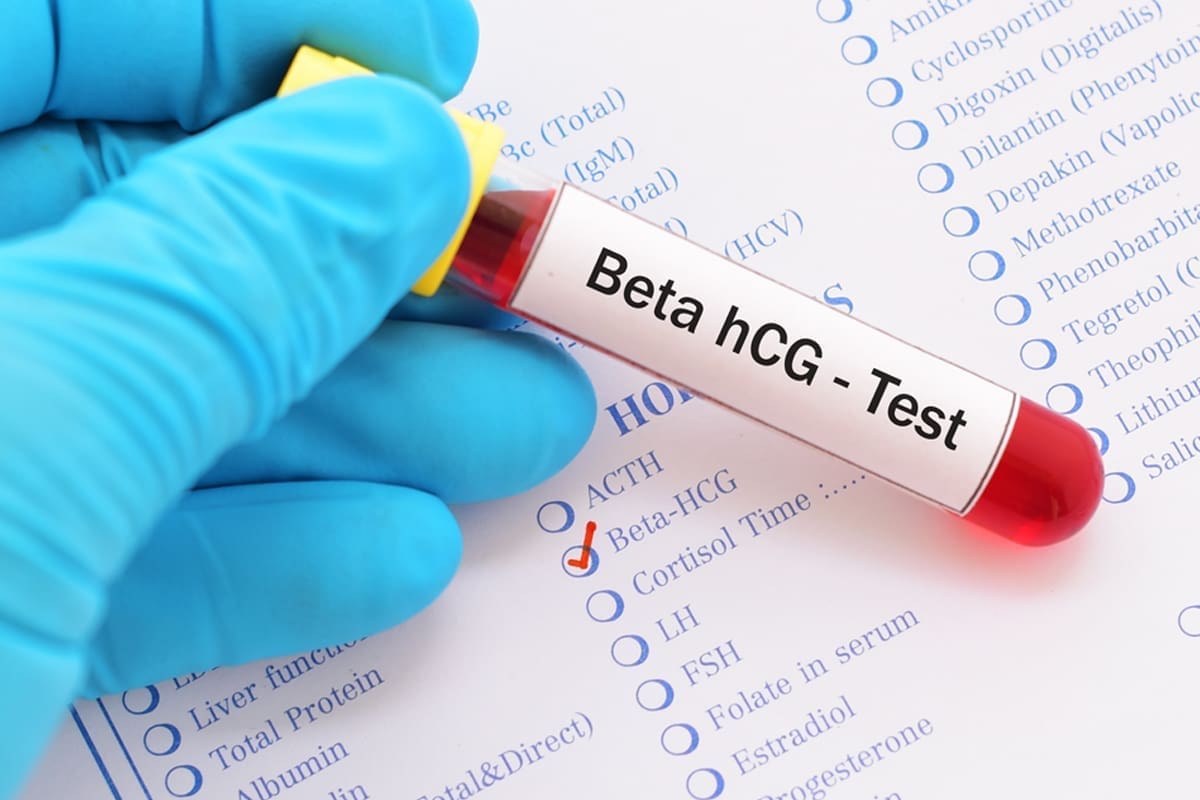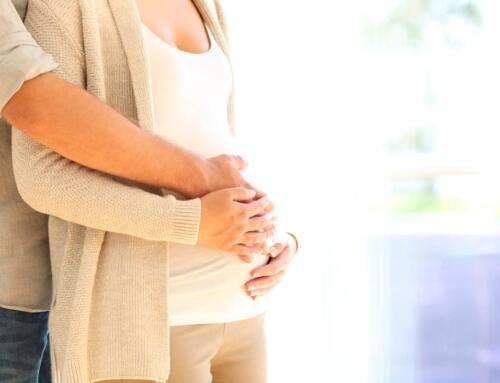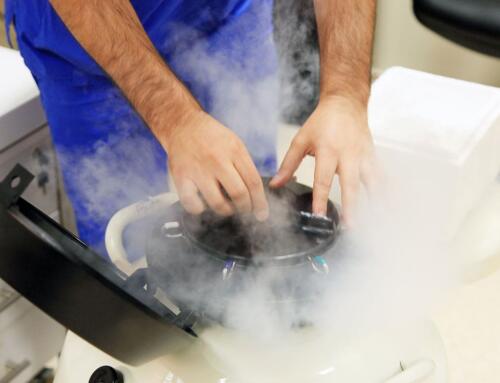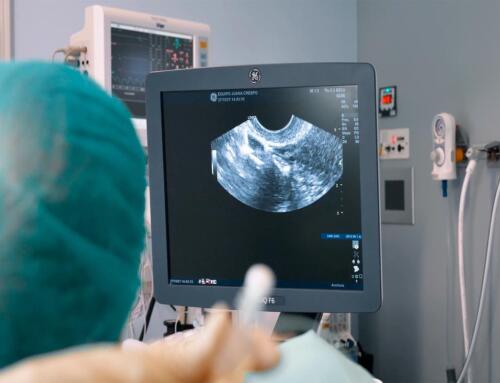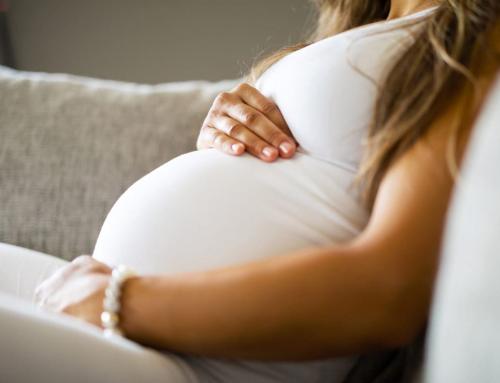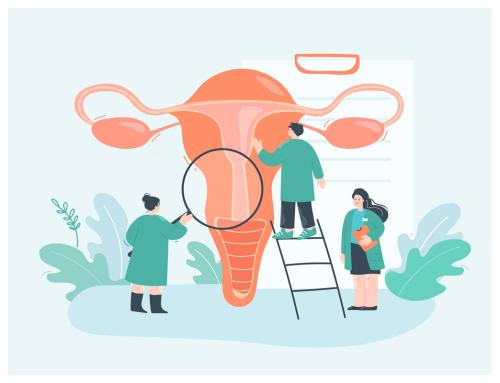The two-week wait refers to the period between the embryo transfer to the completion of the pregnancy test by means of a blood test.
It is a very difficult time to deal with emotionally. Both the presence of symptoms such as ovarian pain, breast tenderness or fatigue, as well as the absence of symptoms, are experienced by the woman and/or her partner with great anxiety.
Therefore, one of the main tips for dealing with the two-week wait period is to try to manage stress and emotions with the support of a partner, family, or friends.
How is pregnancy confirmed during the two-week wait?
The period between the embryo transfer and the pregnancy test is known as “the two week wait”. During this stage, gestation is confirmed by the presence of beta-hCG hormone in the blood.
Beta-hCG or human chorionic gonadotropin allows the development of the endometrium and the growth of the fetus, and is the hormone released by the embryo when it implants in the mother’s uterus.
How long does beta-hCG last, and why do I have to wait to take a pregnancy test?
The beta-hCG hormone can be detected in the blood from the eighth day after fertilization and in the urine about 14 days later.
In the assisted reproduction treatments that we perform in the clinic, we recommend doing the pregnancy test depending on the degree of development of the embryo at the time of transfer. If the embryo was transferred at D3 we recommend doing the beta at 12 days post-transfer and if the embryo was transferred at D5, what we call blastocyst, we will do the beta at 10 days post-transfer.
But, what happens if the beta happens to be on a weekend? If it is Saturday, there is no problem. In Juana Crespo we do perform the HCG pregnancy test on Saturday mornings. If you are in another city, most testing laboratories also do. If it falls on a Sunday, it is probably because you had the embryo transfer done on a Thursday. In that case, ideally, you should be able to wait until the following Monday to perform the pregnancy test. If you perform the test the day before, the beta-hCG levels may be low, resulting in false negatives or minimal values that will force you to repeat the test.
Symptoms of negative and positive test results
Many of you are concerned about whether you will experience any “signs” that you are pregnant during the two-week wait.
Generally speaking, the typical symptoms of a positive hCG test:
- Nausea.
- Increased frequency of urination.
- Cramping.
- Tiredness.
- Heaviness and swelling in the abdomen or legs.
- Heavy vaginal discharge (clear or yellowish).
- Lower back pain
- Breast enlargement.
- Insomnia
In any case, the possible pregnancy symptoms during the two week wait vary greatly from one woman to another. In fact, they can often be mistaken for fertility treatment symptoms, and appear whether the pregnancy test comes back positive or negative. It should be noted that many women do not experience any of these symptoms if they have tested positive for hcg.
We also receive many questions at our clinic about the possible two-week wait bleeding and its relationship to a positive or negative pregnancy result.
It is very important to emphasize that the embryo transfer should always be painless and free of any bleeding. However, the truth is that in some cases, when the embryo attaches to the inner wall of the uterus, it breaks some small veins and arteries of the endometrium. This can cause bleeding that is lighter than menstrual bleeding, intermittent and dark red, almost brown. This could be implantation bleeding.
- You may be interested in: How to recognize implantation bleeding
How high does the hCG hormone have to be for it to be positive? What if the levels are low?
hCG hormone levels increase from the beginning of gestation until the first trimester of pregnancy and then begin to decrease.
As a general guideline, and by performing the test on day 14 with a blood test, a value below 5 mIU/mL is considered negative; a value above 5 mIU/mL is considered positive; below 100 mIU/mL it may be advisable to repeat the test in 2-3 days to confirm that the pregnancy is progressing. If beta-hCG levels double during this period, we will have a favorable result; if they decrease, we would have had a biochemical pregnancy.
Even so, beta-hCG hormone levels can vary greatly from one woman to another. In fact, even if they are low, pregnancy can proceed normally: the most important thing is that they are increased in the right proportion.
What can I do and what not to do during beta wait? Some practical tips
During the two-week wait your emotions are at their peak and you should take care of yourself both physically and mentally.
In most cases, absolute bed rest is not necessary, so, a priori, during the two-week wait you will be able to continue with your normal life. Only if your work requires great physical effort or long hours on your feet, the doctor may advise you to take a sick leave.
Dr. Crespo always tells her patients “do what makes you happy”. And it is very important to have a positive attitude during these days, among other things, it will help us to reduce our stress levels.
What to eat and drink during the two-week wait?
During the two-week wait you should eat a healthy, varied and balanced diet, rich in fiber including plenty of fruit, vegetables, meat, and fish. We usually prescribe progesterone in injectable form and/or ovules. Progesterone can hinder intestinal transit. A diet rich in fiber, with plenty of water and fluids, will help to counteract possible constipation.
Some specialists recommend taking gelatin rich in proteins and nuts, and reducing the consumption of raw foods such as serrano ham or sushi.
During the two-week wait it is also advisable to hydrate properly, with water, natural orange juice or isotonic drinks rich in mineral salts. The consumption of alcohol and carbonated beverages is not recommended.
How can I manage anxiety or feelings of uncertainty?
Doing breathing routines and relaxation exercises can help you feel better and reduce nerve and anxiety during the two-week wait.
Another tip to face these days with peace of mind is to limit your conversations about this subject and even reduce engagements and activities with pregnant women and children if it will increase your anxiety. It is important to disconnect and only discuss the topic with those with whom you feel truly comfortable.
Communication with your partner is especially important these days, and professional psychological support will give you the tools you need to cope with the process. Because, although you should keep a positive attitude, you should be prepared for any outcome.
Can I exercise?
During the two-week wait you should avoid high-intensity exercise, and also any kind of exercise that involves contact since that may pose a risk. Practicing yoga or pilates and walking are some of the exercise routines you can follow during these days.
Should I be watchful for possible symptoms?
During the two-week wait many women become obsessed and are constantly checking for possible symptoms or going to the bathroom to see if they have had any spotting. This behavior can increase thoughts focused on waiting and be counterproductive.
Our advice is to try to stay detached and seek out leisure activities to unwind. On these days, you should also not look for information on the Internet or enter related forums.
When should I consult my doctor?
If you start spotting during the two-week wait, please consult us directly to make sure that everything is going well.
During these days, do not medicate yourself, consult us before taking any medication. In addition, you must go to your appointment with our doctor on the day he/she tells you to do the pregnancy test. Avoid early results and home pregnancy tests that may create false expectations.
All these tips can help you to cope better with the two-week wait and to face the pregnancy test calmly. Feeling the support of your partner and those closest to you throughout the process will also make you feel more at ease.
And remember: feel free to contact our team at Juana Crespo, if you have any questions.


